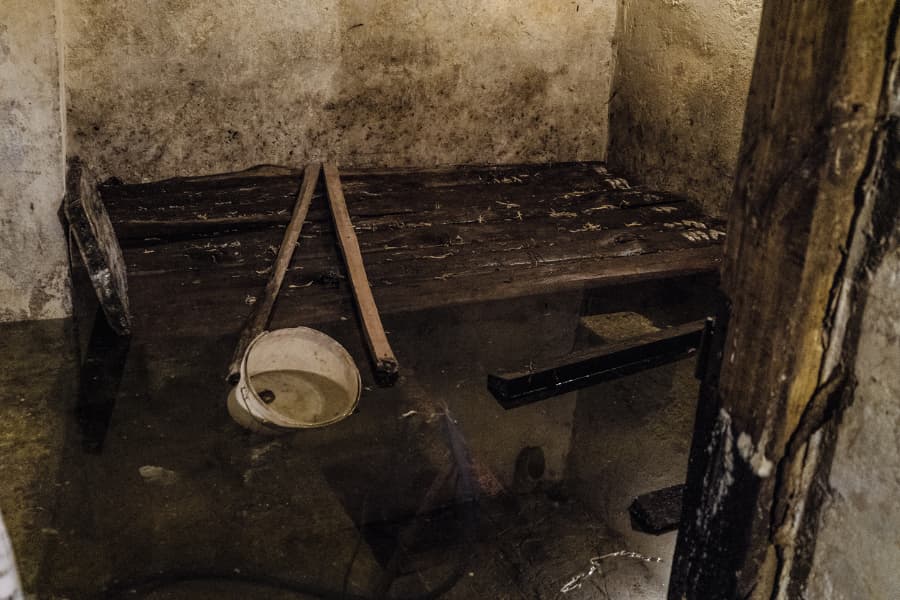
Damages, such as cracks or warps, to your basement walls, may indicate underlying structural or foundation issues, and leaky pipes, appliances, or windows can lead to the growth of mold and mildew behind the walls. This leakage can ruin the drywall and even the studs. And if it’s a slow leak that you haven’t detected, you might not realize that toxic mold has grown inside the walls until it has reached malodorous or particularly harmful levels.
As a professional basement and foundation repair company, we at Premier Wall Anchor and Waterproofing have seen and repaired some of the worst-case scenarios involving basement damage experienced by homeowners in Ohio.
What Causes Worst-Case Scenario Basement Damage?
Water leaks can be among the most damaging to the home, and it doesn’t have to just come from a burst pipe. Old, corroded water heaters can flood a basement or the city water main that enters the house. And if you live in a flood zone or have gutters and rain spouts that empty too close to the home, water can seep into the walls and wreak havoc on the foundation.
Often, foundation damage is caused by hydrostatic pressure. This is thousands of pounds of weight from the soil surrounding the foundation that absorbs Spring rains and heavy melting snow. It causes the soil to expand and eventually shift the foundation. Hydrostatic pressure can cause so much stress to the basement walls that they end up collapsing, and that’s a worst-case scenario no one wants.
Keep an eye out for a shifted or cracked foundation which can be identified in the basement by bowing or cracking in the walls or uneven or distorted floors.
Fixing Foundation Damage
It’s crucial to get your foundation fixed immediately before a wall collapses. A damaged wall deteriorates over time and makes a home unsafe if left unattended. If the damage becomes too extensive, you may need to move out of your home while the walls and foundation are being repaired, but if you catch it in time, the damage may be minimal, saving you a boatload of money.
The Dangers Of Water Damage In Your Basement
If your basement is unfinished, it may be chronically moist. An inspection can tell you for sure, but using a dehumidifier in the basement can eliminate the dangers of excessive humidity. Water in the walls can even affect your electrical wiring, which can cause a fire. It’s best to examine your basement regularly to check for cracks.
Small cracks in the basement walls, typically caused by the house settling, can lead to water damage. You may not even notice hairline cracks, especially if they’re closer to the ceiling or the basement is dimly lit.
The worst-case scenario for water leaks is a wholly flooded basement and damage to your belongings or the collapse of your home. Most people notice instant flooding, and if you’re able, turn off the water at the main shutoff valve, usually located in the basement or outside wall. However, flooding can be from external causes, too, and in these cases, you may not be able to stop it and should safely evacuate your home and call for emergency services.
Cleaning Up Water Damage
If your pipe has burst, it’s vital to remove the water and then to fix the walls and inspect the beams and joists for structural damage. If you have mold or mildew — you can tell if your basement smells like wet newspapers — you may need a remediation service to safely remove all of the mold spores and treat your home to prevent regrowth. A professional basement and foundation repair company can determine the extent of the damage.
Contact Us For All Of Your Basement Structural Needs
If you’ve noticed some of these signs of damage to your basement, such as bowing walls or odors that indicate mold or mildew, it’s time for an assessment from our specialists at Premier Wall Anchor and Waterproofing. We can analyze any damage and give you a fair, no-obligation quote to repair it. Give us a call at (800) 573-7170, or visit us online today — don’t wait for a worst-case scenario!






